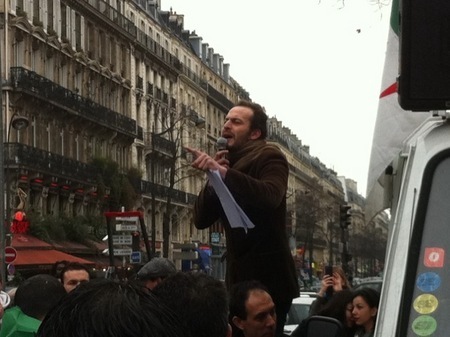 After yesterday’s spontaneous clean-up operation on the streets of Cairo,
protestors gathered at Freedom Square today to maintain the revolution’s momentum. There have been minor developments, with the army and its interim civilian administration dissolving
President Mubarak’s gerrymandered parliament, preparing the way for an election in the future.
After yesterday’s spontaneous clean-up operation on the streets of Cairo,
protestors gathered at Freedom Square today to maintain the revolution’s momentum. There have been minor developments, with the army and its interim civilian administration dissolving
President Mubarak’s gerrymandered parliament, preparing the way for an election in the future.
The timetable for that election remains a mystery – something about which the international community, led by President Obama and assorted European leaders, is questioning without yet expressing concern. Both Britain and the United States, together with the European Union have again reiterated their support for democracy in Egypt, whilst maintaining that the Egyptian military’s conduct has been exemplary so far.
Meanwhile, protests and dissent are spreading, with further heated demonstrations taking place in Algeria. The gale of change that is tearing-up Arab Street is beginning to affect internal European politics. Solidarity protests have been held in Paris and elsewhere in France, a consequence of its historical ties with Algeria. More worrying for European governments, there are reports of swathes of refugees from Tunisia arriving in Lampedusa, a small island off Sicily. Italian authorities have been overwhelmed by what they are terming an ‘invasion’, according to al-Jazeera. Further strain on migration services and border controls is likely to be an upshot of political unrest. There are other problems too. It appears that Hosni Mubarak has secreted vast assets in Britain and other European countries. The fate of our recent friend Mubarak and his estate, not to mention the many football-mad autocrats still in office, poses an awkward dilemma for the West, as it seeks a close relationship with whatever government emerges in Egypt.






Comments